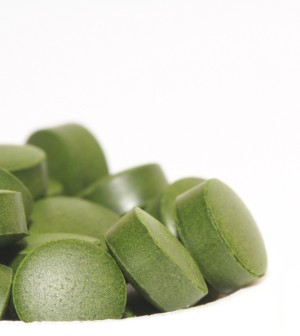- Could Your Grocery Store Meat Be Causing Recurring UTIs?
- Are You Making This Expensive Thermostat Error This Winter?
- Recognizing the Signs of Hypothyroidism
- 10 Strategies to Overcome Insomnia
- Could Artificial Sweeteners Be Aging the Brain Faster?
- Techniques for Soothing Your Nervous System
- Does the Water in Your House Smell Funny? Here’s Why
- Can a Daily Dose of Apple Cider Vinegar Actually Aid Weight Loss?
- 6 Health Beverages That Can Actually Spike Your Blood Sugar
- Treatment Options for Social Anxiety Disorder
No More Than 6 Teaspoons of Added Sugars a Day for Kids

Children and teens should consume less than six teaspoons of added sugars a day, a new American Heart Association statement advises.
“Our target recommendation is the same for all children between the ages of 2 and 18, to keep it simple for parents and public health advocates,” statement lead author Dr. Miriam Vos said in a heart association news release.
Added sugars are any sugars, including table sugar, fructose and honey, used in processing and preparing foods or beverages, added to foods at the table, or eaten separately.
“For most children, eating no more than six teaspoons of added sugars per day is a healthy and achievable target,” Vos explained. She is a nutrition scientist and associate professor of pediatrics at Emory University School of Medicine in Atlanta.
The statement also said children younger than 2 years should not consume foods or beverages with added sugars at all. In addition, children and teens aged 2 to 18 should consume no more than 8 ounces of sugar-sweetened drinks a week.
The statement, published Aug. 22 in the journal Circulation, is based on a review of available scientific research on how sugar affects children’s health.
Regular consumption of foods and drinks high in added sugars can lead to high blood pressure, obesity and diabetes, which increase the risk of heart disease.
“Children who eat foods loaded with added sugars tend to eat fewer healthy foods, such as fruits, vegetables, whole grains and low-fat dairy products that are good for their heart health,” Vos noted.
“There has been a lack of clarity and consensus regarding how much added sugar is considered safe for children, so sugars remain a commonly added ingredient in foods and drinks, and overall consumption by children remains high — the typical American child consumes about triple the recommended amount of added sugars,” she said.
Starting in July 2018, food products sold in the United States will have to list the amount of added sugars on the Nutrition Facts Panel.
“Until then, the best way to avoid added sugars in your child’s diet is to serve mostly foods that are high in nutrition, such as fruits, vegetables, whole grains, low-fat dairy products, lean meat, poultry and fish, and to limit foods with little nutritional value,” Vos said.
More information
The U.S. Department of Agriculture has more on added sugars.
Source: HealthDay
Copyright © 2026 HealthDay. All rights reserved.










